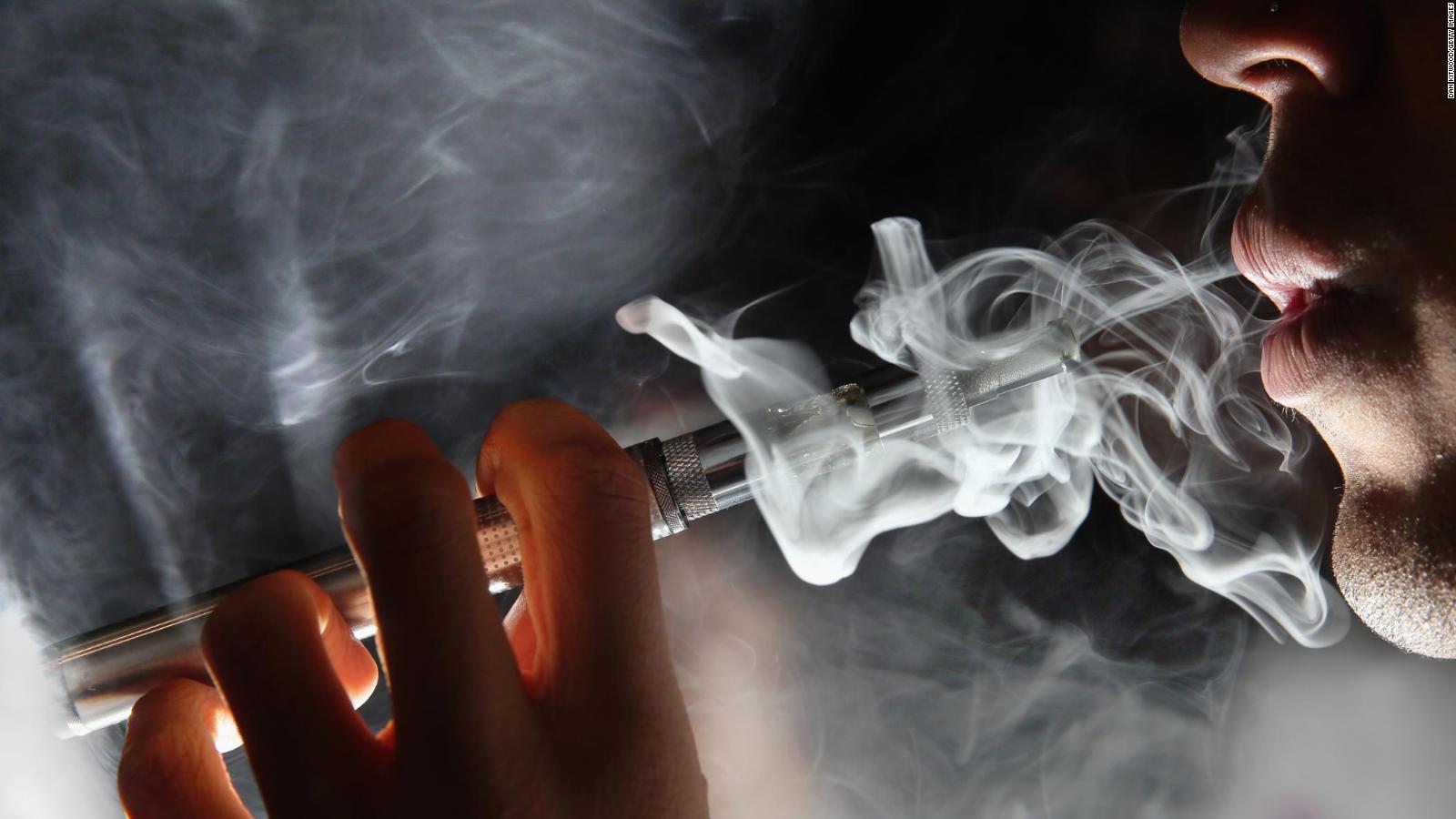Vape store owners in both states filed lawsuits requesting preliminary injunctions to put a pause on the statewide bans that halted sales of vaping products.
In September New York became the first state in the nation to implement a ban on the sale of flavored electronic cigarettes and nicotine e-liquids, and later expanded that ban to menthol-flavored products.
Store owners in the state won a small victory against that ban, however, when a New York appellate court issued a temporary restraining order Thursday. A hearing to address the preliminary injunction of the ban will be heard by a judge in New York Supreme Court on October 18, but the ban is on hold at least until a judge rules on the litigation.
"It is undeniable that the vaping industry is using flavored e-cigarettes to get young people hooked on potentially dangerous and deadly products. While the court's ruling temporarily delays our scheduled enforcement of this ban, it will not deter us from using every tool at our disposal to address this crisis. Make no mistake: this is a public health emergency that demands immediate action to help ensure the well-being of our children, and we're confident that once the court hears our argument they will agree," New York State Health Commissioner Dr. Howard Zucker said in a statement about the pending litigation.
Gov. Andrew Cuomo wrote an op-ed in the New York Daily News speaking against the dangers of flavored vaping products among youth and recently signed legislation to raise the age to purchase tobacco and e-cigarette products from 18 to 21.
In Massachusetts, Gov. Charles Baker declared a public health emergency to ban all online and retail sale of nicotine, flavored, non-flavored and marijuana vaping products to consumers in the state for four months.
A federal judge in Massachusetts heard arguments Friday in consideration of a temporary restraining order on the vaping ban. A group of vape store owners submitted a petition for a preliminary injunction on the 4-month product ban, claiming irreparable harm to their businesses and customers.
US District Court Judge Indira Talwani ordered an evidentiary hearing to rule on the preliminary injunction motion for October 15. In the meantime, Talwani has taken the temporary restraining order under advisement, but said Friday in open court that she was leaning in favor of allowing the government ban, according to Craig Rourke, who's representing the store owners.
The vape store owners claim that the ban will cause them to lose on average, $4,000-$5,000 per week, per store, and force layoffs workers and eventually close their shops. In addition, the vape store owners said the statewide ban will force their customers to return to smoking cigarettes or obtain unregulated products.
Since the litigation was filed, the administration released an update to the ban that says sellers can still sell products to out-of-state consumers via the internet.
Rourke called the updated policy "illusory" because the ban still prohibits products from coming into Massachusetts, so he says sellers won't be able to maintain inventory or fill orders. Baker's office did not immediately respond to CNN for comment.
During the temporary ban, Baker announced that the administration will "work with medical experts, state and federal officials to better understand vaping illnesses and work on additional steps to address this public health crisis. This could include legislation and regulations," he said in a previous statement.
Other states considering bans
Other states are considering prohibiting the sale of vaping products.
Ohio Gov. Mike DeWine on Tuesday called for a statewide ban on the sale of flavored vaping products, including mint and menthol. The ban will not include tobacco-flavored products, according to the governor's office. Last week, Washington Gov. Jay Inslee called an emergency ban on all flavored vaping products, including those that contain nicotine and THC.
Health officials in Pennsylvania and New Jersey have issued guidelines discouraging consumers from using vape products.
The US Centers for Disease Control and Prevention confirmed 1,080 probable cases of lung injury associated with e-cigarette use in 48 states and the US Virgin Islands as of October 1.
As of Friday, 21 deaths have been identified nationwide as part of the multistate outbreak of lung injury associated with vaping: two in California, two in Kansas, two in Oregon, and one each from Alabama, Connecticut, Delaware, Florida, Georgia, Illinois, Indiana, Michigan, Minnesota, Mississippi, Missouri, Nebraska, New Jersey, Pennsylvania and Virginia.
Bagikan Berita Ini

















0 Response to "Vape store owners are suing to stop the product bans in New York and Massachusetts"
Post a Comment